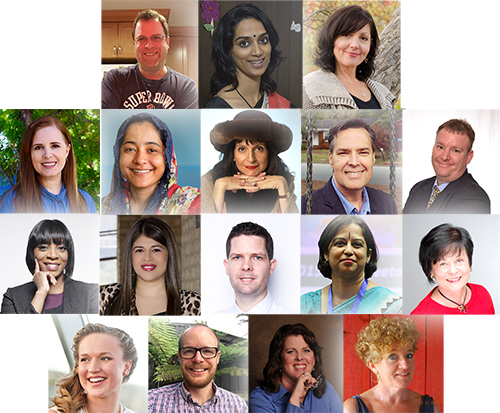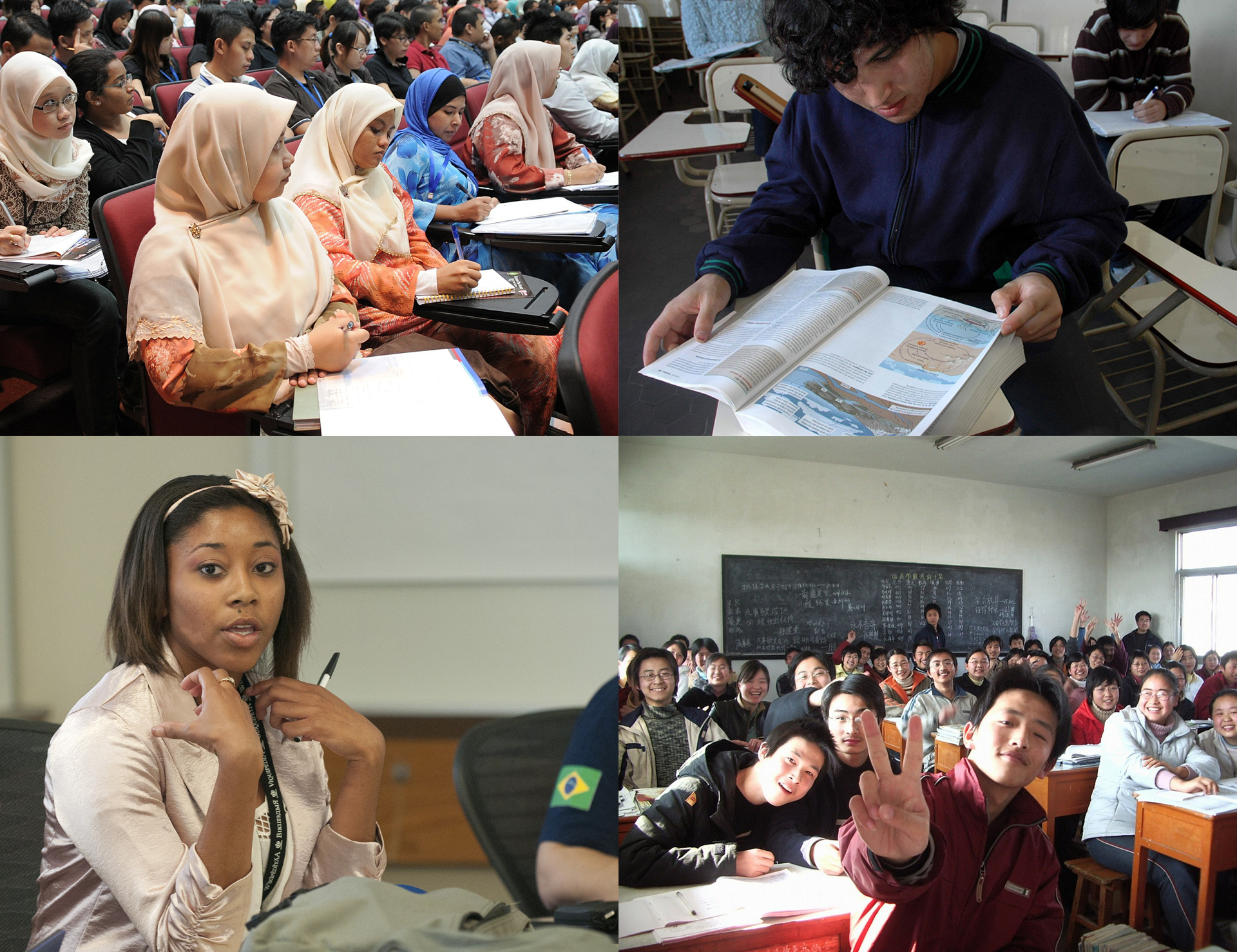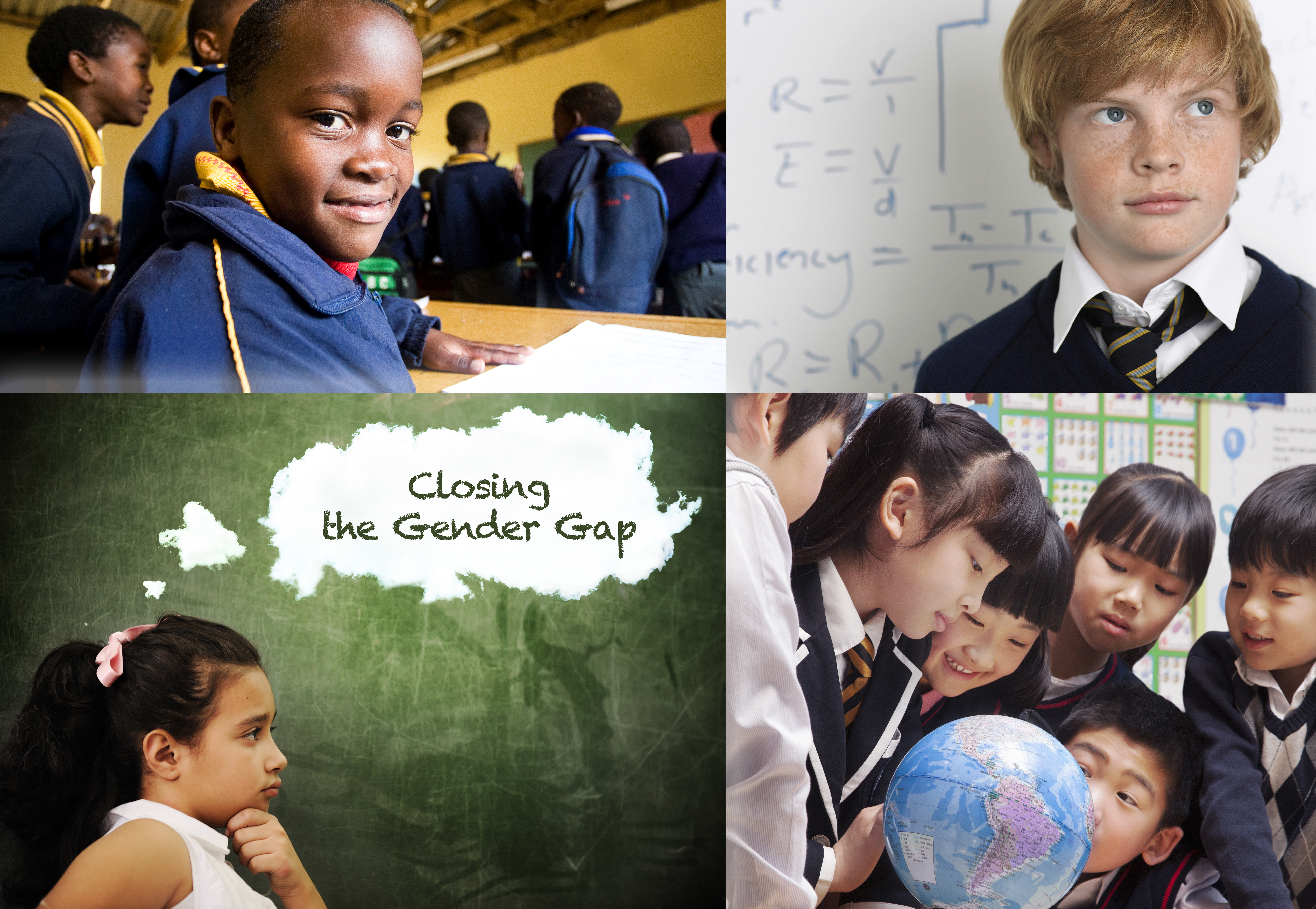
The role of teachers is paramount to raising educational standards around the globe. In countries such as Finland, Singapore and South Korea, teachers are recruited from the most qualified graduates, are highly trained, respected and paid well. But that’s not the case in every country. According to Mckinsey’s “Closing the Talent Gap: Attracting and Retaining Top-Third Graduates to Careers in Teaching”, in the United States for example, και μόνο 23 percent of new teachers come from the top third, και απλά 14 percent are in high poverty schools, where the difficulty of attracting and retaining talented teachers is particularly acute. If nations are serious about attracting the best talent to educate their children, they clearly need to improve the value proposition to potential candidates.
Μας Παγκόσμια Δάσκαλος Bloggers είναι πρωτοπόροι και καινοτόμοι σε τομείς όπως η ενσωμάτωση της τεχνολογίας, μαθηματικά προπόνηση, Ειδικής Αγωγής, διδασκαλία της επιστήμης, και την ισότητα των φύλων. Έχουν ίδρυσε σχολεία, γραπτή προγράμματα σπουδών, και οδήγησε αίθουσες διδασκαλίας στην 13 διαφορετικές χώρες που εκτείνονται σε όλη την κάθε πυκνοκατοικημένη ήπειρο της γης. Αυτοί οι εκπαιδευτικοί ενδυναμώνουν και εμπλουτίζουν τις ζωές των νέων ανθρώπων από σχεδόν κάθε υπόβαθρο μπορεί να φανταστεί κανείς.
Σήμερα στο Η Σφαιρική Αναζήτηση για Εκπαίδευση, μας Top Παγκόσμιο Δάσκαλος Bloggers μοιράζονται τις απαντήσεις τους στην ερώτηση αυτού του μήνα: Πώς μπορούμε να εμπνεύσουμε τους καλύτερους και εξυπνότερους να γίνουν εκπαιδευτές?
The short answer to our question for Miriam Mason-Sesay (@EducAidSL) in Sierra Leone is to “ενεργό συμμετοχή των νέων σε ένα νέο πρότυπο. Εάν η επιτυχία ορίζεται από την άποψη της ανθρώπινης ύπαρξης; αν η επιτυχία ορίζεται με βάση το πόσα άτομα έχουν είχα ένα θετικό αντίκτυπο στην μέσα τους τρόπους μου να είναι και η αντιμετώπισή τους; αν η επιτυχία ορίζεται από την άποψη της έχω κάνει τον κόσμο ένα καλύτερο μέρος από τους τρόπους που φερόμαστε στους άλλους και να ζήσουν τη ζωή μου, τότε υπάρχει ένας ενθουσιασμός για την ύπαρξη μέρος του μοναδικού επαγγέλματος, όπου μπορούμε να αλλάξουμε πραγματικά τις πιθανότητες της ζωής εκατοντάδων νέων.” Διαβάστε περισσότερα.
Maarit Rossi (@pathstomath) offers crucial insight into the question, being from Finland–arguably the country with the best teachers in the world. She thinks it boils down to simple concepts like: “respect of the profession, flexibility of the curriculum, δάσκαλοι’ high level of education and autonomy of teaching methods.” Στη Φινλανδία, there are no school inspectors nor national tests. Teachers themselves are trusted to observe and evaluate their students. “I make my own tests or make them together with a colleague. We don’t give much homework.” Διαβάστε περισσότερα.
“Within the most challenging schools there are educators whose love for what they do can be infectious because they see value of impacting the lives of children,” says Nadia Lopez (@TheLopezEffect) whose school is in one of New York’s low income neighborhoods where recruiting and keeping skilled teachers is very difficult. Check out Nadia’s top tips to attract the best and brightest to a career in education: Διαβάστε περισσότερα.
Adam Steiner’s blog (steineredtech) is inspired by the award-winning book, Επαγγελματική Κεφαλαίου (Συγγραφείς Andy Hargreaves @HargreavesBC and Michael Fullan @MichaelFullan1). Επαγγελματίας Capital recognized that teaching cannot be scripted and emphasized collective responsibility and shared success as key to school success. Steiner notes that the lessons of Επαγγελματική Κεφαλαίου identify “key factors in recruiting and retaining the best teachers”: Διαβάστε περισσότερα.
Pauline Hawkins (PaulineDHawkins) asserts “American teachers are scapegoats for everything wrong with our society.” So how does Pauline suggest we bring respect to the profession? The first step in her multiple step process is “getting rid of the ridiculous evaluation system based on standardized tests and tied to teacher pay. Master teachers know that their true effectiveness cannot be measured by a test.” Διαβάστε περισσότερα.
“It starts with us! The people in education right now!” λέει ο Craig Kemp (mrkempnz) who believes that part of the problem is the media tends to show the hardships of being an educator. Craig, who credits his Mum for his passion to teach, says educators must promote and share what they do in positive ways. “One comment can influence someone to become a teacher.” Διαβάστε περισσότερα.
Rashmi Kathuria (@rashkath) from India notes, “Teaching is not just a job from 8:00 am to 3:00 μμ. It is a time consuming job even after regular school hours.” When teachers go home they don’t usually get to relax; teachers prepare assignments, do corrections, and work at home preparing lesson plans. They also, “take up online self-professional development from home.” Rashmi recommends incentives for teachers who do extraordinary work such as “a subsidized internet connection to work from home and remain connected with students through their blogs/wikis/online classrooms.” Διαβάστε περισσότερα.
“There are no magic tricks” says Dana Narvaisa (@dana_narvaisa) from Latvia who shares experiences from her own journey. “If you’re a leader in your twenties or thirties, you’re looking for growth, you’re looking for mentors, for role models. To get the best and brightest to become educators, they need at least a few more like-minded people on their team for long term success.” Διαβάστε περισσότερα.
Money and common sense are key, notes Todd Finley (finleyt) quoting Stanford Professor Linda Darling-Hammond: “Nearly all of the vacancies currently filled with emergency teachers could be filled with talented, well-prepared teachers if 40,000 service scholarships of up to $25,000 each were offered annually” to offset teacher education costs based on merit. Curriculum that’s too focused on standardized test scores is “soul killing” and evaluation by VAM Scores should immediately stop. “To attract teachers, we need the public will to support service scholarships, increase pay, stop over-testing, and terminate verifiably wrong-headed evaluation practices.” Διαβάστε περισσότερα.
Ρίτσαρντ Γουέλς (@EduWells) takes a different approach to the question. “I believe it makes for a more positive debate when people discuss the potential growth of current teachers, than that of asking: ‘how do we attract better people?” So how does New Zealand build the best and the brightest teachers? Διαβάστε περισσότερα.
Katherine Franco Cardenas (@ProfKaterineFra) of Colombia writes for Η Σφαιρική Αναζήτηση για Εκπαίδευση in her native language of Spanish and believes that, “one way to inspire the best and brightest to become an educator lies in providing the opportunity for direct interaction with teachers making a difference in the context in which they operate.” It’s important for teachers to meet inspiring educators to serve as a role model for how an educator can make a positive effect on their communities. Διαβάστε περισσότερα.
Το Top Παγκόσμιο Δάσκαλος Bloggers είναι μια μηνιαία σειρά, όπου οι εκπαιδευτικοί σε όλη την προσφορά κόσμο βιώσει ακόμα μοναδικό παίρνει τη σημερινή πιο σημαντικά θέματα. CMRubinWorld χρησιμοποιεί την πλατφόρμα για να διαδώσει τις φωνές από τα πιο απαραίτητα λαό της μάθησης των θεσμικών μας οργάνων, δάσκαλοι.

Warren Sparrow
Rashmi Kathuria, Maarit Rossi
(Όλες οι φωτογραφίες είναι ευγενική προσφορά του CMRubinWorld)
Έλα μαζί μου και παγκοσμίως γνωστή ηγέτες σκέψης συμπεριλαμβανομένου του Sir Michael Barber (Ηνωμένο Βασίλειο), Ο Δρ. Michael Block (ΗΠΑ), Ο Δρ. Leon Botstein (ΗΠΑ), Καθηγητής Clay Christensen (ΗΠΑ), Ο Δρ. Linda Ντάρλινγκ-Hammond (ΗΠΑ), Ο Δρ. MadhavChavan (Ινδία), Ο καθηγητής Michael Fullan (Καναδάς), Ο καθηγητής Howard Gardner (ΗΠΑ), Ο καθηγητής Andy Hargreaves (ΗΠΑ), Ο καθηγητής Yvonne Hellman (Η Ολλανδία), Ο καθηγητής Kristin Helstad (Νορβηγία), Jean Hendrickson (ΗΠΑ), Καθηγητής Rose Hipkins (Νέα Ζηλανδία), Καθηγητής Cornelia Hoogland (Καναδάς), Αξιότιμο Jeff Johnson (Καναδάς), Η κ. Chantal Kaufmann (Βέλγιο), Ο Δρ. EijaKauppinen (Φινλανδία), Υφυπουργός TapioKosunen (Φινλανδία), Ο καθηγητής Dominique Λαφοντέν (Βέλγιο), Ο καθηγητής Hugh Lauder (Ηνωμένο Βασίλειο), Lord Ken Macdonald (Ηνωμένο Βασίλειο), Ο καθηγητής Geoff Masters (Αυστραλία), Καθηγητής Barry McGaw (Αυστραλία), Shiv Nadar (Ινδία), Καθηγητής R. Natarajan (Ινδία), Ο Δρ. PAK NG (Σιγκαπούρη), Ο Δρ. Denise Πάπα (ΗΠΑ), Sridhar Rajagopalan (Ινδία), Ο Δρ. Diane Ravitch (ΗΠΑ), Richard Wilson Riley (ΗΠΑ), Sir Ken Robinson (Ηνωμένο Βασίλειο), Καθηγητής Pasi Sahlberg (Φινλανδία), Καθηγητής Manabu Sato (Ιαπωνία), Andreas Schleicher (PISA, ΟΟΣΑ), Ο Δρ. Anthony Seldon (Ηνωμένο Βασίλειο), Ο Δρ. David Shaffer (ΗΠΑ), Ο Δρ. Kirsten Μοναδική Are (Νορβηγία), Στήβεν Spahn (ΗΠΑ), Yves Theze (LyceeFrancais ΗΠΑ), Ο καθηγητής Charles Ungerleider (Καναδάς), Ο καθηγητής Tony Wagner (ΗΠΑ), Sir David Watson (Ηνωμένο Βασίλειο), Καθηγητής Dylan Γουίλιαμ (Ηνωμένο Βασίλειο), Ο Δρ. Mark Wormald (Ηνωμένο Βασίλειο), Ο καθηγητής Theo Wubbels (Η Ολλανδία), Ο καθηγητής Michael Young (Ηνωμένο Βασίλειο), και ο καθηγητής Minxuan Zhang (Κίνα) καθώς εξερευνούν τα μεγάλα ζητήματα της εκπαίδευσης εικόνα που όλα τα έθνη αντιμετωπίζουν σήμερα.
Η Παγκόσμια αναζήτηση για την Εκπαίδευση της Κοινότητας Σελίδα
C. M. Rubin είναι ο συγγραφέας των δύο πολυδιαβασμένα online σειρά για την οποία έλαβε ένα 2011 Βραβείο Upton Sinclair, “Η Σφαιρική Αναζήτηση για Εκπαίδευση” και “Πώς θα μας Διαβάστε?” Είναι επίσης ο συγγραφέας του μπεστ σέλερ τρία βιβλία, Συμπεριλαμβανομένων Η Ρεάλ Αλίκη στη Χώρα των Θαυμάτων, Είναι ο εκδότης του CMRubinWorld, και είναι ένα Ίδρυμα Fellow δι'υπερήχων.






Πρόσφατα σχόλια